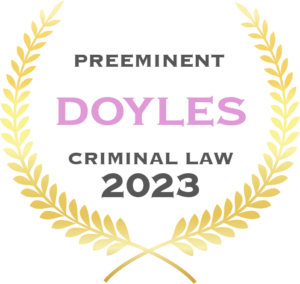News that the Australian Federal Police (AFP) have conducted raids on journalists and news outlets last week has caused significant alarm within the media industry.
The AFP, armed with warrants, raided the home of News Corp journalist Annika Smethurst as well as the ABC Headquarters in Sydney, in response to news stories that exposed ‘government secrets’.
What happened?
AFP officers descended on Smethurst’s home last Tuesday to search her house, laptop and mobile phone.
The raid was sparked by Smethurst’s 2018 article which accused the government of considering allowing the Australian Signals Directorate to monitor Australian citizens.
The article was accompanied by an image of a ‘top-secret memo’.
The following day, the AFP raided the ABC’s headquarters in Sydney, allegedly in response to the 2017 ‘Afghan Files’.
These documents are comprised of alarming allegations of misconduct by Australian Special Forces.
The raids were conducted for 7 and 8 hours, respectively.
The media reacts
Media outlets have criticised the raids as ‘a dangerous act of intimidation’.
News Corp Australia described the situation as ‘outrageous’.
The New York Times was highly critical of the ‘aggressive’ raids, in an article titled ‘Australia May Well Be the World’s Most Secretive Democracy’.
The raids could have devastating implications for journalists attempting to protect the confidentiality of sources.
Ben Fordham, a journalist who is the subject of an investigation by the AFP declared the chances of him revealing his sources is ‘zero’.
“Not today, not tomorrow, next week or next month. There is not a hope in hell of that happening,” he said.
A journalist’s ethical obligation to ensure source confidentiality has been recognised by the United Nations.
It is vital to an independent democracy.
It is under threat in Australia.
National security laws
Australia has more national security laws than any other nation.
In 2018 the Turnbull Government introduced the National Security Legislation Amendment (Espionage and Foreign Interference) Act 2018 (Cth).
The Act includes a suite of toughened laws , among which are offences involving ‘secrecy’, ‘sabotage’ and ‘treachery’.
The Act introduces tough penalties for Commonwealth officers who leak classified information, as well as offences for persons who ‘communicate’ the secret information.
The Act contains a ‘public interest defence’ for secrecy offences, which could potentially be utilised by journalists.
However, the journalists that are currently being investigated cannot rely on this statutory defence, as the conduct being investigated took place prior to the Act’s commencement.
The Act also creates a maximum penalty of life imprisonment for treacherous conduct (outlined in section 80.1AC).
A 25-year prison term can be imposed for an individual who commits an offence of ‘sabotage involving a foreign principal with intention as to national security’.
The Act defines ‘foreign principal’ as any of the following:
- A foreign government principal
- A foreign political organisation
- A public international organisation
- A terrorist organisation
The offence is believed to have been created in response to the US Government’s allegation that Russia interfered in the 2016 election.
Key Takeaways
- Australian Federal Police (AFP) conducted raids on journalists and media outlets, sparking significant concern regarding media freedom.
- The raids targeted individuals for exposing government secrets, including surveillance proposals and misconduct by Australian Special Forces.
- Critics argue these actions intimidate the media and threaten journalistic confidentiality and freedom, essential for democracy.
- Australia's national security laws, considered extensive, facilitate such raids, raising debates over their impact on press freedom and the balance with national security.
Where to now?
The ABC’s lawyers have two weeks to review the documents that have been taken by police.
They may take the matter to court to challenge the terms of the warrant, or they may argue that the documents are subject to professional privilege.
Depending on the outcome, the police may use the documents as evidence against individuals who have leaked the classified sources.
If you need advice or representation for a criminal matter, call Hamilton Janke Lawyers 24 hours a day, 7 days a week on 4038 1666.
Written By

James Janke
James Janke is founding partner at Hamilton Janke Lawyers, and has more then decade of experience as a Criminal Defence Lawyer. Admitted to both the Supreme Court of New South Wales and High Court of Australia



